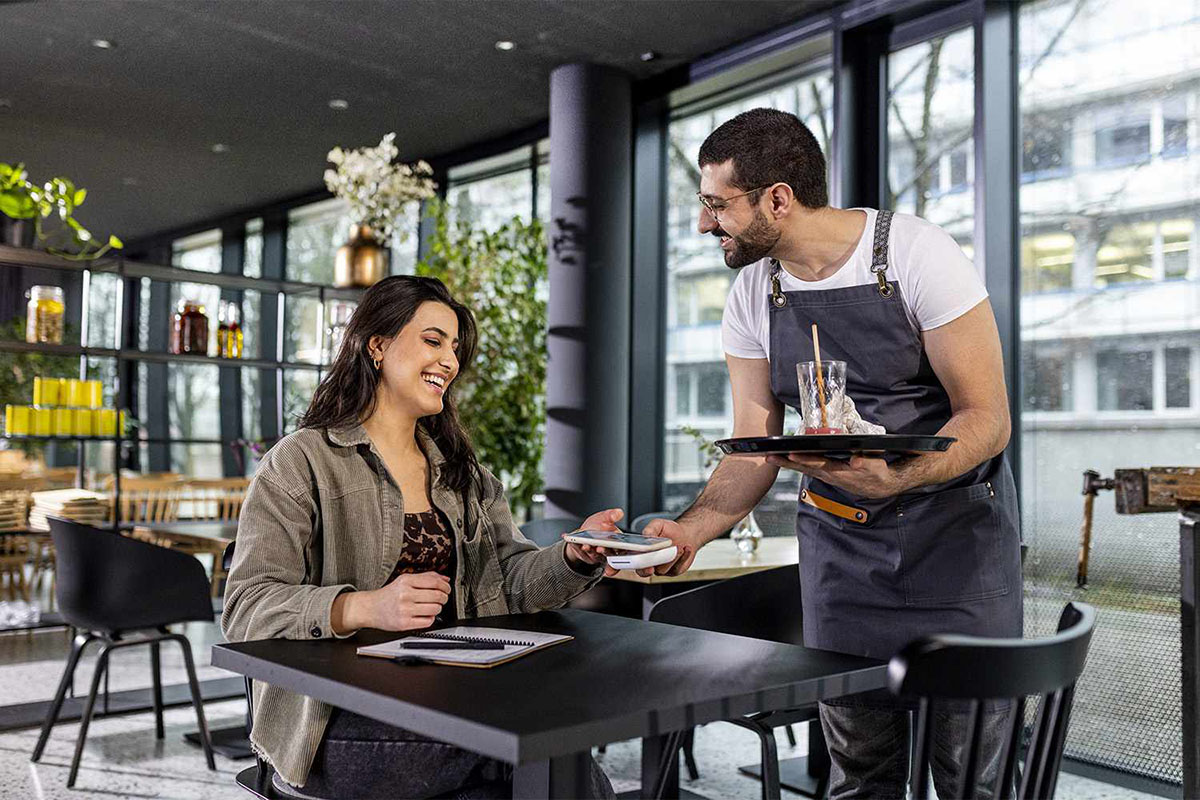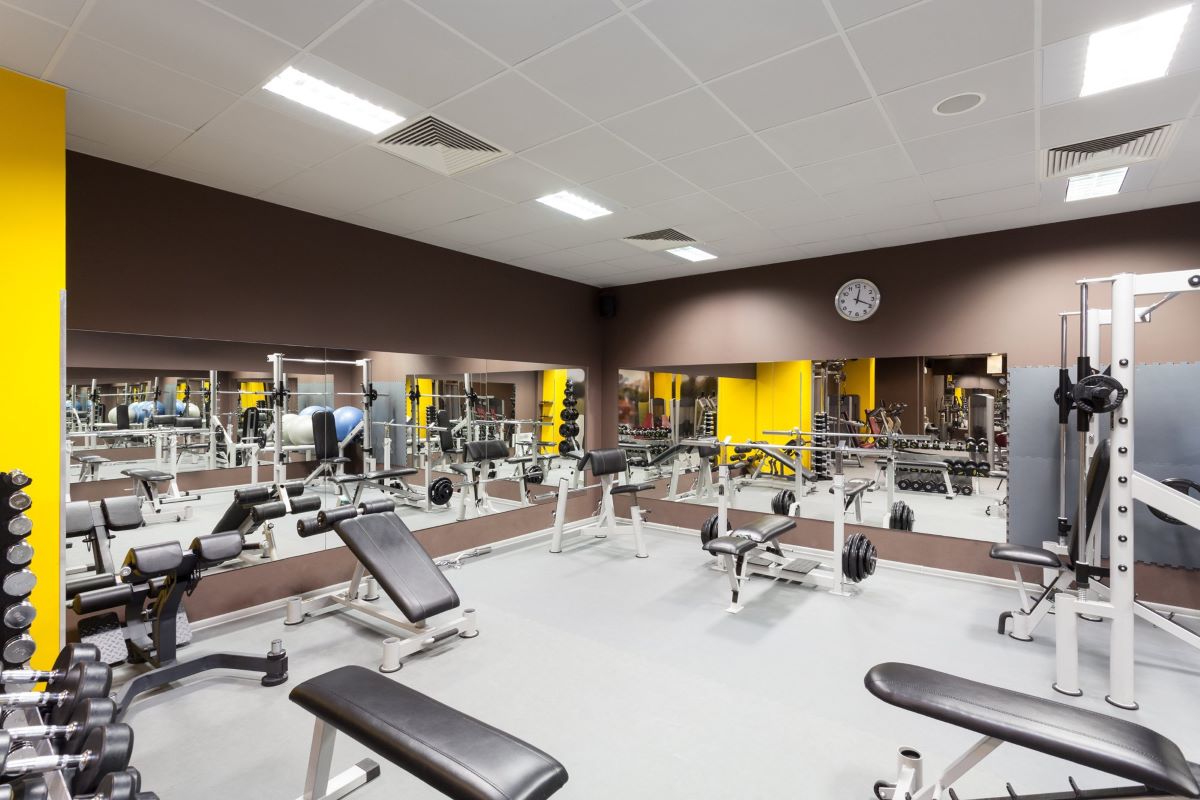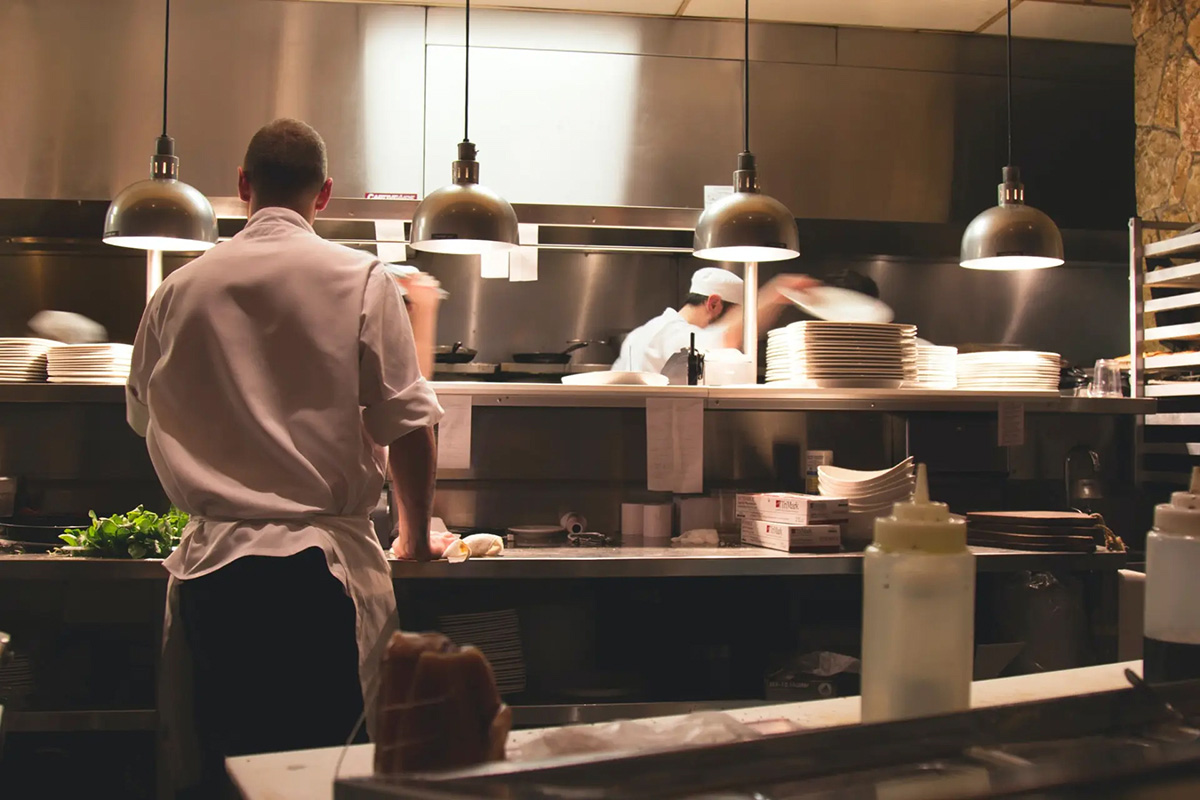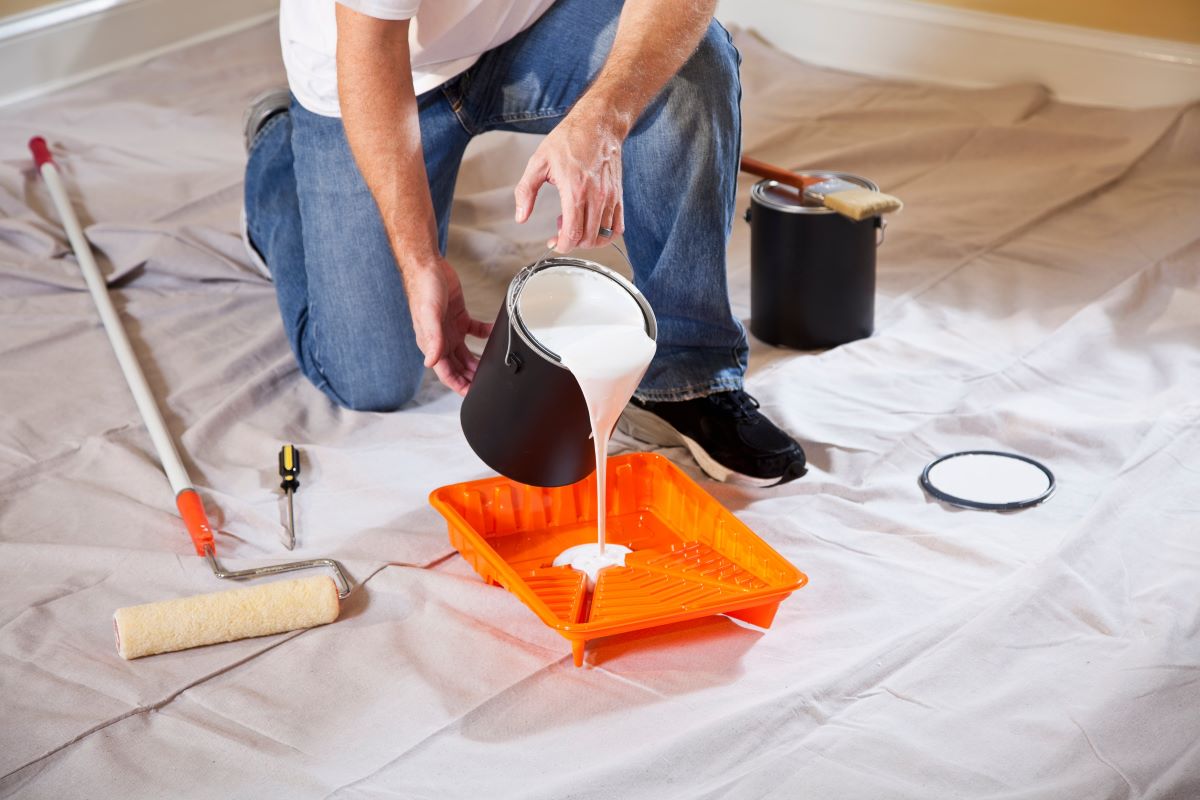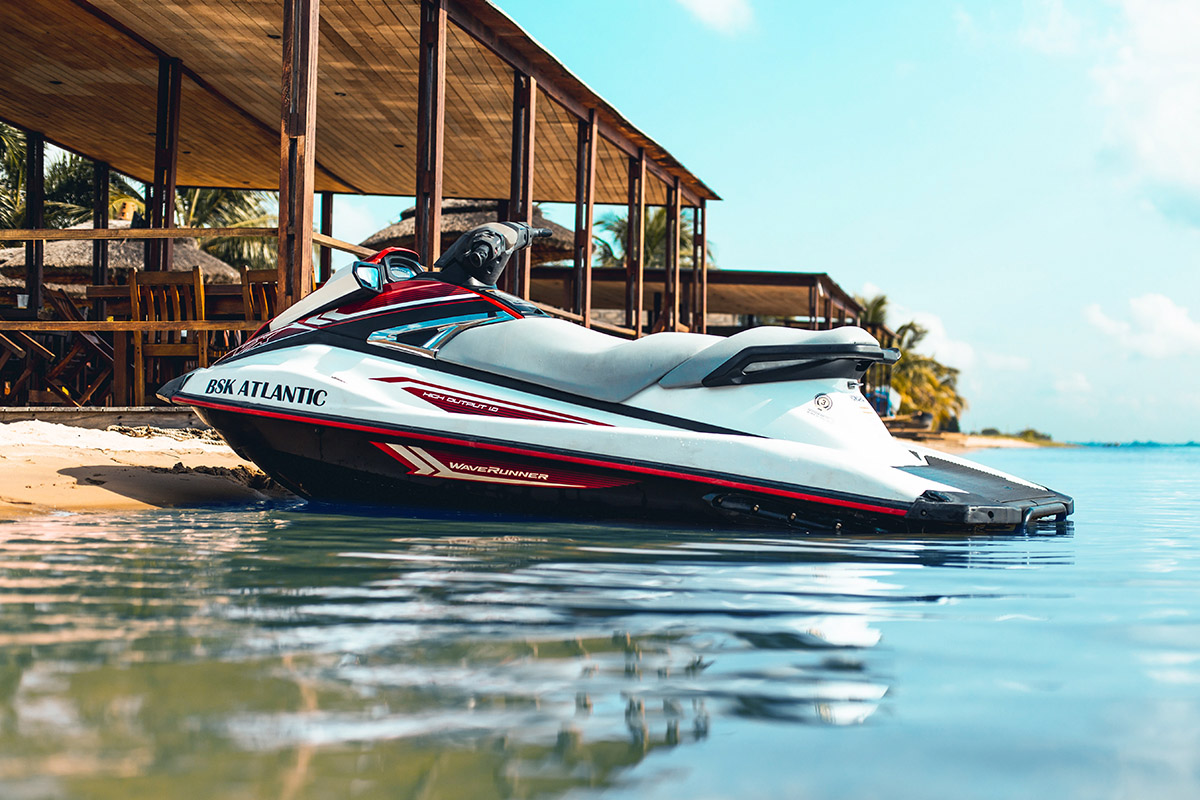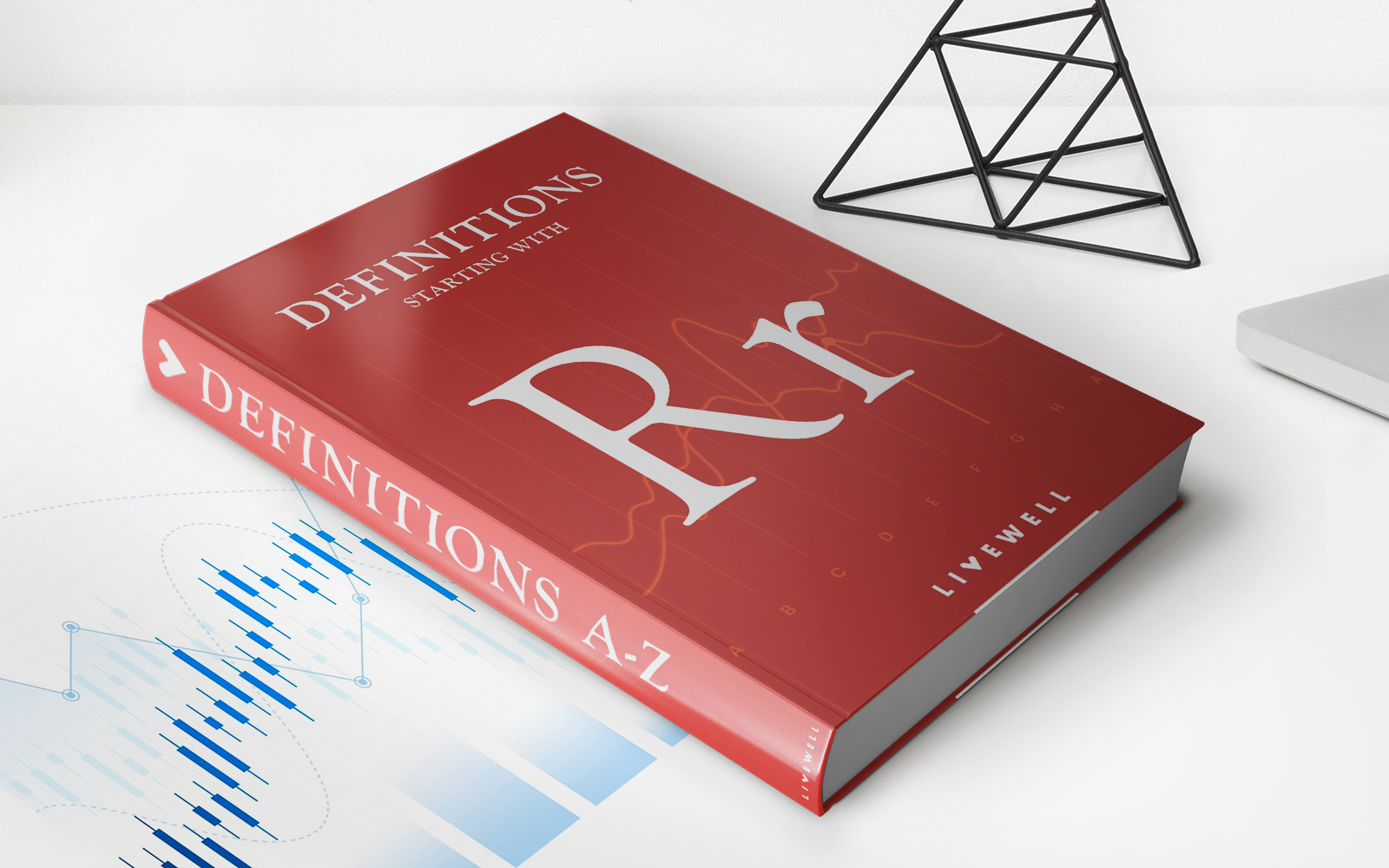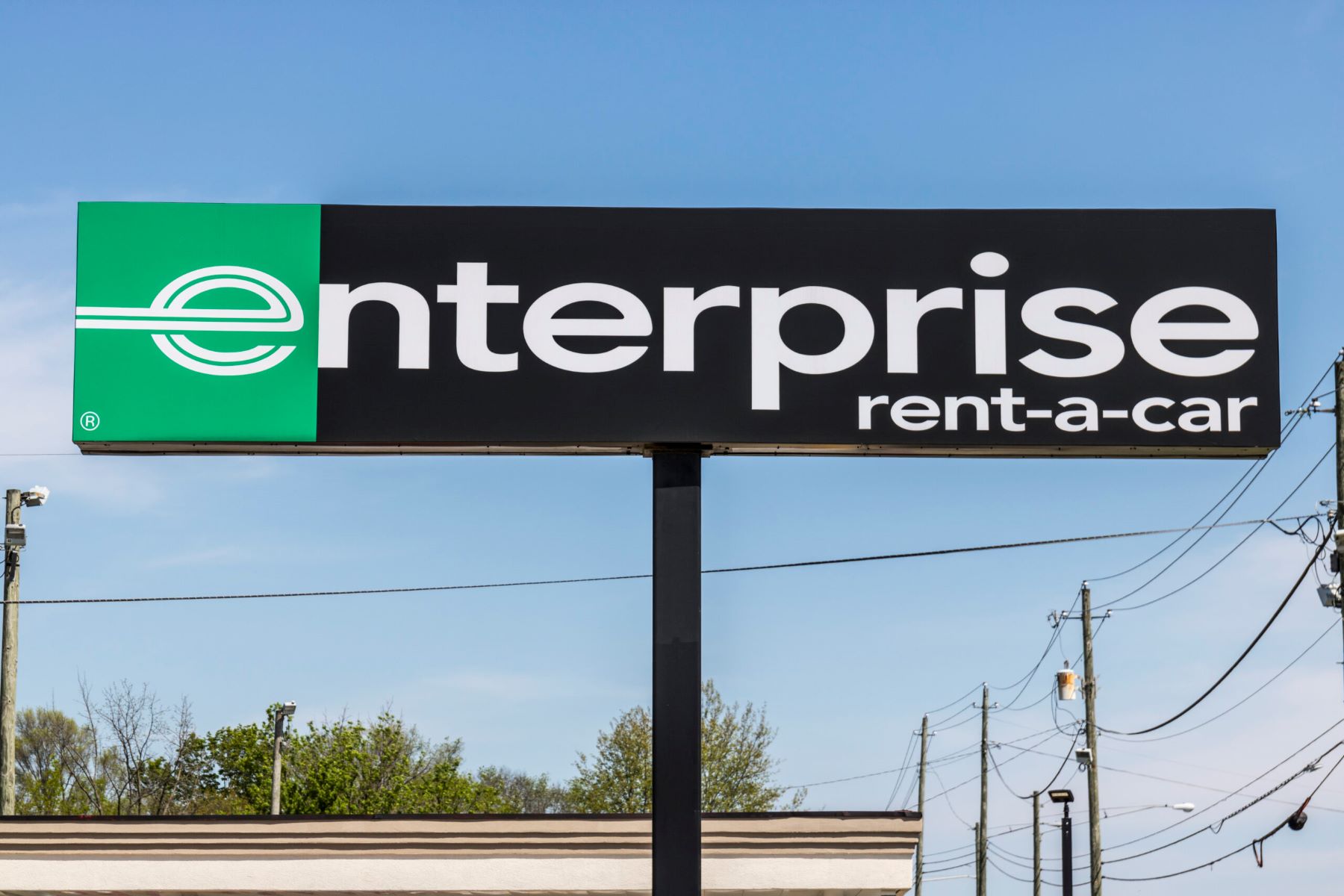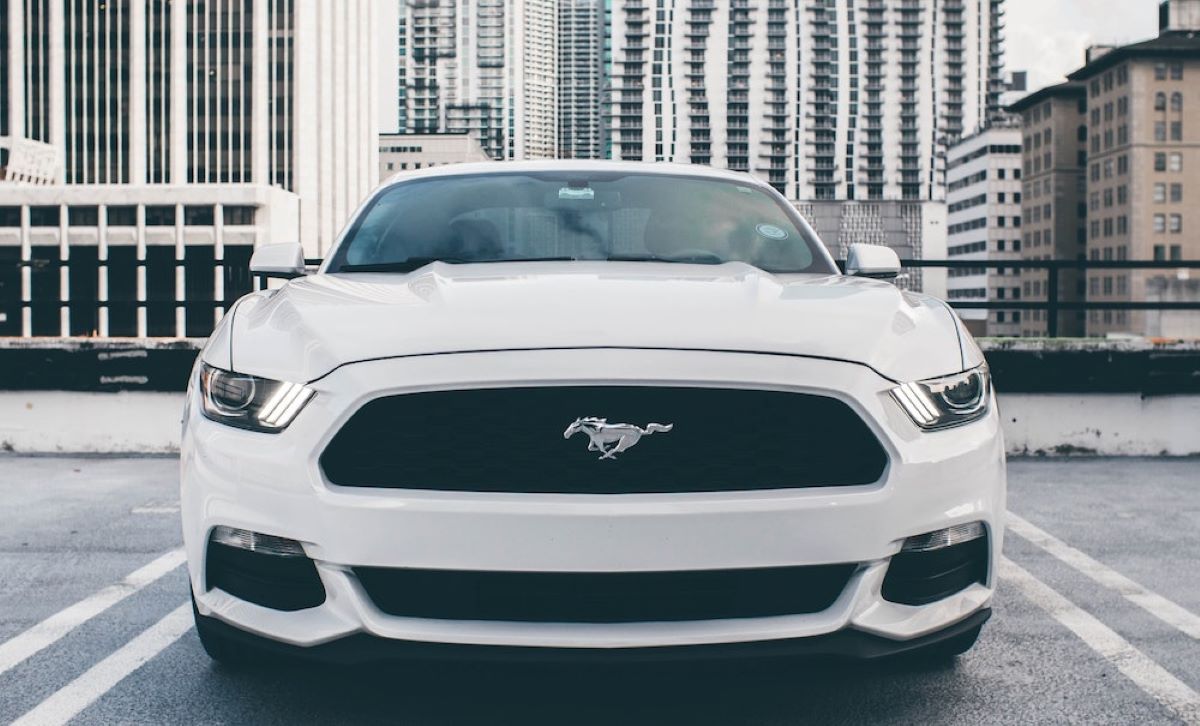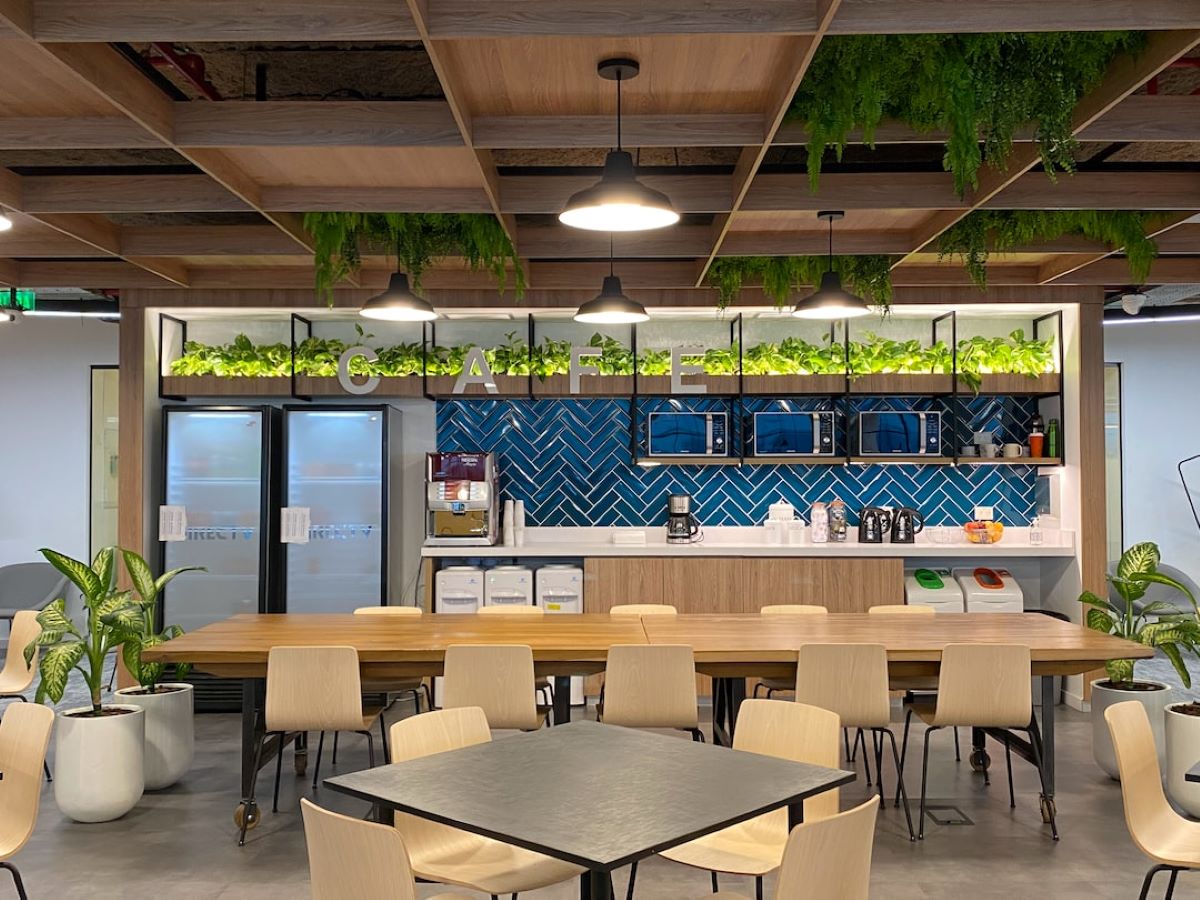

Finance
How Much Is Insurance For A Restaurant?
Published: November 8, 2023
Looking for restaurant insurance? Find out how much insurance for a restaurant costs and protect your finances with the right coverage.
(Many of the links in this article redirect to a specific reviewed product. Your purchase of these products through affiliate links helps to generate commission for LiveWell, at no extra cost. Learn more)
Table of Contents
- Introduction
- Factors that Affect Restaurant Insurance Costs
- Types of Insurance Coverage for Restaurants
- Property Insurance
- General Liability Insurance
- Workers’ Compensation Insurance
- Liquor Liability Insurance
- Umbrella Insurance
- How to Determine the Cost of Restaurant Insurance
- Tips for Reducing Restaurant Insurance Premiums
- Conclusion
Introduction
Opening and running a restaurant can be an exciting venture, filled with the satisfaction of serving delicious food and creating memorable dining experiences. However, along with the joys of running a restaurant come various risks and liabilities that need to be addressed.
One crucial aspect of protecting your restaurant is obtaining the right insurance coverage. Restaurant insurance is specifically designed to safeguard your establishment from a wide range of risks, including property damage, liability claims, employee injuries, and more.
But how much does restaurant insurance cost? The answer depends on a multitude of factors. In this article, we will explore the factors that affect restaurant insurance costs, the different types of insurance coverage available, and tips on how to determine the cost of restaurant insurance.
Whether you’re a budding restaurateur or a seasoned veteran in the industry, understanding the intricacies of restaurant insurance is essential for ensuring the long-term success and viability of your establishment.
So, let’s delve into the world of restaurant insurance and shed light on how to protect your investment.
Factors that Affect Restaurant Insurance Costs
When determining the cost of restaurant insurance, several factors come into play. Insurance providers consider these factors to assess the level of risk associated with insuring your establishment. Let’s take a closer look at the key factors influencing restaurant insurance costs:
- Type of Cuisine and Menu Items: The type of cuisine your restaurant serves can impact insurance costs. Certain cuisines, such as high-risk cuisines like deep-fried foods or open-flame cooking, can increase the likelihood of fires and accidents, thereby potentially increasing insurance premiums.
- Location: The location of your restaurant is a significant factor in insurance pricing. Restaurants located in areas with high crime rates or prone to natural disasters may face higher insurance costs.
- Size and Square Footage: The size of your restaurant and the overall square footage can affect insurance costs. Larger establishments may require higher coverage limits, resulting in higher premiums.
- Revenue and Sales Volume: Insurance providers may take into account your restaurant’s annual revenue and sales volume when calculating premiums. Higher revenue implies a higher risk exposure, which could lead to increased insurance costs.
- History of Claims: Insurance providers consider your restaurant’s claims history to assess the likelihood of future claims. A history of frequent or high-value claims may result in higher insurance premiums.
- Business Experience: Insurance companies often take into account the experience and expertise of the restaurant owner. Inexperienced owners may be seen as having a higher risk profile, leading to higher insurance costs.
- Employee Safety Measures: Implementing proper safety measures, such as employee training programs and regular equipment maintenance, can help reduce insurance costs. Insurance providers may offer discounts for establishments that prioritize employee safety.
It’s important to note that these factors can vary between insurance providers, so it’s recommended to seek quotes from multiple insurers to compare costs and coverage options.
Types of Insurance Coverage for Restaurants
Restaurant insurance is a comprehensive coverage package specifically tailored to meet the unique needs of the foodservice industry. It comprises various types of insurance coverage, each serving a specific purpose in protecting your restaurant. Let’s explore the main types of insurance coverage commonly available for restaurants:
- Property Insurance: Property insurance is essential for safeguarding your restaurant’s physical structures and assets. It provides coverage for damages or losses resulting from fire, theft, vandalism, or other covered perils. Property insurance can also cover equipment, furniture, inventory, and signage.
- General Liability Insurance: General liability insurance is crucial for protecting your restaurant against third-party claims of bodily injury or property damage. It covers legal expenses, medical costs, and potential settlement fees if a customer or guest is injured on your premises or if their property is damaged due to your business operations.
- Workers’ Compensation Insurance: Workers’ compensation insurance is typically mandated by law and provides coverage for employee injuries or illnesses that occur in the workplace. It covers medical expenses, disability benefits, and lost wages for employees who are injured or become ill while on the job.
- Liquor Liability Insurance: If your restaurant serves alcohol, it’s crucial to have liquor liability insurance. This coverage protects your establishment against claims arising from alcohol-related incidents, such as fights, property damage, or accidents caused by intoxicated patrons. Liquor liability insurance can help cover legal expenses and potential damages resulting from these incidents.
- Umbrella Insurance: Umbrella insurance provides additional liability coverage beyond the limits of your primary liability policies. It serves as an extra layer of protection and helps cover costs that exceed the limits of your existing liability coverage. Umbrella insurance is especially beneficial for restaurants as it offers additional financial protection against significant claims.
It’s important to note that these are the core types of insurance coverage for restaurants, but additional coverage options may be available depending on the specific needs of your establishment. Working closely with an experienced insurance agent can help you determine the most suitable coverage for your restaurant.
Property Insurance
Property insurance is a vital component of restaurant insurance, as it protects your establishment’s physical property and assets against various perils. Owning a restaurant involves significant investments in equipment, furnishings, and inventory, and property insurance helps safeguard these assets from potential damages or losses.
Property insurance typically covers damages caused by fire, theft, vandalism, natural disasters like storms or earthquakes, and other specified events. Here are some key points to consider regarding property insurance for restaurants:
- Building Coverage: Property insurance can provide coverage for the actual building structure that houses your restaurant. This includes the walls, roof, floors, and any attached fixtures.
- Contents Coverage: Contents coverage protects the furniture, equipment, and other items inside your restaurant. This can include kitchen appliances, tables and chairs, POS systems, and other essential assets.
- Inventory Coverage: Property insurance can also extend coverage to your restaurant’s inventory, including food, beverages, and other consumable goods.
- Business Interruption Coverage: In the event of a covered loss, property insurance may provide business interruption coverage. This coverage helps compensate for lost income and additional expenses incurred during the restoration period when your restaurant cannot operate.
- Equipment Breakdown Coverage: Equipment breakdown coverage is crucial for restaurants as it provides protection against the costs associated with the sudden breakdown of vital equipment, such as refrigerators, ovens, or HVAC systems. This coverage can help cover repair or replacement costs and the financial impact of business interruption.
When securing property insurance for your restaurant, it’s essential to accurately evaluate the value of your building, contents, and inventory. This ensures that you have sufficient coverage to recover the costs in case of a loss.
Keep in mind that some perils, such as floods or earthquakes, may not be covered under standard property insurance policies. If your restaurant is located in an area prone to these risks, it’s advisable to consider purchasing separate policies, such as flood insurance or earthquake insurance, to adequately protect your property.
Consulting with an experienced insurance professional can help you assess your property insurance needs and find the right coverage to safeguard your restaurant’s physical assets.
General Liability Insurance
General liability insurance is a crucial component of restaurant insurance that provides essential protection against third-party claims of bodily injury or property damage. Running a restaurant involves interacting with customers, suppliers, and other visitors, and there is always a risk of accidents or incidents occurring on your premises.
Here are some key points to understand about general liability insurance for restaurants:
- Bodily Injury Coverage: General liability insurance covers medical expenses, legal fees, and potential settlements if a customer or guest sustains bodily injury on your premises. Whether it’s a slip and fall accident, a food-related allergy incident, or an injury caused by a malfunctioning piece of equipment, this coverage can help protect your restaurant from financial liabilities.
- Property Damage Coverage: Should your restaurant cause damage to someone else’s property, general liability insurance provides coverage for the associated costs. For example, if a fire starts in your restaurant and spreads to neighboring businesses, this coverage would help cover the damages and any resulting legal expenses.
- Product Liability Coverage: If your restaurant serves food or beverages, product liability coverage is essential. It protects against claims arising from illnesses, allergic reactions, or other injuries caused by the consumption of your products.
- Advertising Injury Coverage: General liability insurance can also provide coverage for advertising injury claims. This includes allegations of slander, libel, copyright infringement, or misleading marketing practices.
- Legal Defense: In addition to covering the cost of settlements and damages, general liability insurance helps cover the legal expenses associated with defending your restaurant against third-party claims.
General liability insurance is vital for restaurants as it provides financial protection and peace of mind. In today’s litigious society, even a minor incident or allegation can lead to costly legal proceedings. Having general liability coverage helps protect your restaurant’s reputation and assets.
It’s important to review your policy limits to ensure they are adequate for your restaurant’s needs. Working closely with an insurance professional who specializes in restaurant insurance can help you understand the specific risks your establishment faces and tailor your general liability coverage accordingly.
Remember, accidents can happen at any time, and being prepared with the right insurance coverage is essential for the long-term success and stability of your restaurant.
Workers’ Compensation Insurance
Workers’ compensation insurance is a crucial component of restaurant insurance that provides essential coverage for employee injuries or illnesses that occur in the workplace. In the fast-paced restaurant industry, where employees often work with sharp tools, hot surfaces, and hectic environments, the risk of accidents or injuries is prevalent.
Here are some key points to understand about workers’ compensation insurance for restaurants:
- Mandatory Coverage: In most jurisdictions, workers’ compensation insurance is a legal requirement for employers. It is designed to protect employees by providing medical benefits, wage replacement, and rehabilitation services in the event of a work-related injury or illness.
- Medical Benefits: Workers’ compensation insurance covers the costs of medical treatment and care for employees who are injured or become ill as a result of their work. This can include doctor visits, hospital stays, surgeries, medications, and therapy.
- Wage Replacement: If an employee is unable to work due to a work-related injury or illness, workers’ compensation insurance can provide wage replacement benefits to help cover a portion of their lost income during their recovery period.
- Disability Benefits: Workers’ compensation insurance may also include disability benefits, which provide financial assistance to employees who experience a temporary or permanent disability due to a work-related injury or illness.
- Legal Protection: By providing workers’ compensation insurance, employers are protected from potential lawsuits by employees seeking compensation for workplace injuries. In return, employees receive the benefits they are entitled to without having to prove fault or negligence on the part of the employer.
It’s important for restaurant owners to understand the workers’ compensation laws and requirements in their jurisdiction. Failure to carry adequate workers’ compensation coverage can result in significant penalties and legal consequences.
Working closely with an insurance professional who specializes in restaurant insurance can help you navigate the complexities of workers’ compensation insurance. They can assist in ensuring that your policy meets the legal requirements and adequately protects both your employees and your business.
Remember, your employees are an invaluable asset to your restaurant, and providing them with proper insurance coverage demonstrates your commitment to their well-being and safety.
Liquor Liability Insurance
Liquor liability insurance is a specialized type of coverage that is crucial for restaurants that serve alcohol. It provides essential protection against claims arising from alcohol-related incidents that occur on your premises or as a result of your business operations.
Here are some key points to understand about liquor liability insurance for restaurants:
- Protection Against Alcohol-Related Claims: Liquor liability insurance protects your restaurant from claims or lawsuits filed by individuals who have suffered injury, property damage, or other harm as a result of alcohol-related incidents. This can include fights, accidents caused by intoxicated patrons, or property damage caused by individuals who were under the influence while on your premises.
- Coverage for Legal Expenses and Damages: Liquor liability insurance can help cover legal expenses, including attorney fees, court costs, and settlements or judgments, up to the policy’s limits. This can help protect your restaurant’s financial stability in the event of a costly lawsuit.
- Compliance with State Laws: Many states require establishments that serve alcohol to have liquor liability insurance as a condition of obtaining and maintaining their liquor license. It is essential to understand and comply with the specific requirements in your jurisdiction to avoid any potential legal or regulatory issues.
- Assessment of Risk Exposure: Insurance providers offering liquor liability coverage will assess your restaurant’s risk exposure based on factors such as the volume of alcohol sales, the types of alcoholic beverages served, and the establishment’s overall liquor service practices. Your premium rates may be influenced by these factors.
- Training and Responsible Service: Implementing proper alcohol training programs for your staff, such as responsible alcohol service training, can help mitigate risks and may even lead to potential discounts on your liquor liability insurance premiums.
As alcohol-related incidents can have serious financial and legal consequences, having liquor liability insurance is crucial for any restaurant that serves alcohol. Without proper coverage, your restaurant could be exposed to significant financial liabilities that can adversely affect its reputation and long-term viability.
Working closely with an experienced insurance professional who understands the unique risks associated with the restaurant industry can help ensure that you have the proper liquor liability coverage in place.
Remember, responsible alcohol service and having the right insurance protection go hand in hand when it comes to running a successful restaurant.
Umbrella Insurance
Umbrella insurance is a valuable addition to your restaurant insurance coverage, providing an extra layer of financial protection beyond the limits of your primary liability policies. As the name suggests, umbrella insurance acts as an umbrella that extends over your existing policies, offering additional coverage when the limits of those policies are exhausted.
Here are some key points to understand about umbrella insurance for restaurants:
- Expanded Liability Coverage: Umbrella insurance provides increased liability coverage for your restaurant in the event of a significant claim or lawsuit. It helps protect your business assets by covering costs that exceed the limits of your underlying liability policies, such as general liability, auto liability, and employers’ liability.
- Protection Against Catastrophic Claims: Restaurants with higher risk exposure, larger operations, or higher revenues may find themselves exposed to larger claims. Umbrella insurance offers financial protection in case of catastrophic events or lawsuits that have the potential to exceed the limits of your primary policies.
- Multiple Policy Coverage: Umbrella insurance can offer coverage across various underlying policies, providing a comprehensive and coordinated approach to your restaurant’s insurance coverage. It can fill in gaps in coverage that may exist in your primary policies.
- Cost-Effective Financial Protection: Umbrella insurance offers significant financial protection at a relatively low cost. By having umbrella coverage in place, you can enhance your overall insurance program without breaking the bank.
- Peace of Mind: Running a restaurant involves inherent risks, and having adequate umbrella coverage can provide peace of mind. Knowing that you have an extra layer of protection can help you focus on your business operations and growth without constantly worrying about potential liability issues.
It’s important to note that umbrella insurance does not typically cover all risks on its own. It is designed to work in conjunction with your underlying liability policies. Therefore, it’s crucial to maintain appropriate primary liability coverage to ensure that the umbrella policy can effectively extend your liability limits.
Consulting with an experienced insurance professional who specializes in umbrella insurance can help you assess your restaurant’s risk profile and determine the appropriate coverage limits for your umbrella policy.
Remember, protecting your restaurant from substantial claims and lawsuits is vital for its long-term success, and umbrella insurance can provide the added financial security you need.
How to Determine the Cost of Restaurant Insurance
Determining the cost of restaurant insurance involves evaluating several factors specific to your establishment. Insurance providers consider these factors to assess the level of risk associated with insuring your restaurant. Here are some key considerations in determining the cost of restaurant insurance:
- Type of Coverage: The specific types of insurance coverage you need for your restaurant will impact the overall cost. Property insurance, general liability insurance, workers’ compensation insurance, liquor liability insurance, and umbrella insurance all have different premiums based on the scope of coverage they provide.
- Business Size and Revenue: The size of your restaurant and the amount of revenue it generates can influence insurance costs. Larger establishments with higher revenues may face higher premiums due to increased risk exposure.
- Type of Cuisine and Menu: The type of cuisine your restaurant serves and the menu items offered can affect insurance rates. Higher-risk cuisines or menu items that involve open-flame or deep-fried cooking methods may lead to higher premiums due to the increased risk of accidents or fires.
- Location: The location of your restaurant plays a significant role in insurance costs. Areas with higher crime rates or greater exposure to natural disasters may result in higher premiums to account for the heightened risks.
- Claims History: Insurance companies consider your restaurant’s claims history when determining premiums. A history of frequent or high-value claims may result in higher costs, as it suggests a greater risk of future claims.
- Employee Safety Measures: Implementing safety measures, such as employee training programs and regular equipment maintenance, can help lower insurance premiums. Insurance providers may offer discounts to establishments that prioritize employee safety and risk management.
It’s important to obtain multiple quotes from different insurance providers to compare costs and coverage options. Working with an experienced insurance agent who specializes in restaurant insurance can guide you through the process, ensuring you have the appropriate coverage for your specific needs at a competitive price.
Keep in mind that while cost is a significant factor, it’s equally important to consider the quality of coverage and the reputation and financial stability of the insurance provider. Striking the right balance between cost and coverage is key to obtaining comprehensive insurance protection for your restaurant.
Tips for Reducing Restaurant Insurance Premiums
While restaurant insurance is essential for protecting your establishment, there are several strategies you can employ to help reduce insurance premiums without compromising coverage. Here are some tips to consider:
- Implement Safety Protocols: Developing and implementing comprehensive safety protocols can help mitigate risks and reduce insurance premiums. Regular employee training on safety procedures, maintaining proper equipment maintenance schedules, and having clear emergency response plans can demonstrate your commitment to risk management.
- Choose a Higher Deductible: Opting for a higher deductible on your insurance policies can help lower premiums. However, be sure to choose a deductible that you can comfortably afford to pay in the event of a claim.
- Bundle Policies: Many insurance providers offer discounts for bundling multiple policies, such as property, general liability, and workers’ compensation insurance. By consolidating your coverage with one provider, you may be eligible for cost savings.
- Shop Around and Compare Quotes: It’s crucial to obtain quotes from multiple insurance providers to compare costs and coverage options. Each provider may have different underwriting criteria or risk assessments, which can result in varying premium rates.
- Review and Update Coverage Regularly: As your restaurant grows and evolves, it’s essential to review your insurance coverage regularly. Ensure that your policies accurately reflect any changes, such as expansions, renovations, updated equipment, or revised menu offerings. By keeping your coverage up to date, you can avoid being over or underinsured, which may impact your premiums.
- Consider Risk Management Programs: Some insurance providers offer risk management programs specifically tailored for the restaurant industry. These programs provide resources and guidance on implementing best practices for reducing risks and improving safety. Participation in such programs may result in premium discounts.
- Maintain a Positive Claims History: Avoiding frequent or high-value claims can help keep insurance premiums in check. By implementing strong risk management practices and promptly addressing any potential issues, you can maintain a positive claims history, which may result in lower premiums.
Working closely with an experienced insurance agent who specializes in restaurant insurance can provide valuable insights and assistance in finding ways to reduce premiums while maintaining adequate coverage.
Remember, while cost savings are important, it’s crucial to strike a balance between reducing premiums and ensuring that your restaurant has comprehensive insurance protection that adequately addresses its unique risks.
Conclusion
Restaurant insurance is an essential aspect of running a successful establishment. It protects your restaurant from the various risks and liabilities that come with the foodservice industry. Understanding the factors that influence insurance costs, the different types of coverage available, and how to determine the right coverage for your restaurant is crucial in safeguarding your investment.
Factors such as the type of cuisine, location, size of your restaurant, and claims history all play a role in determining insurance costs. By working with an experienced insurance professional, you can assess your specific needs and find the coverage that provides the right level of protection.
Property insurance protects your restaurant’s physical assets, while general liability insurance guards against third-party claims. Workers’ compensation insurance ensures your employees are taken care of in the event of work-related injuries or illnesses, and liquor liability insurance provides coverage for alcohol-related incidents. Umbrella insurance offers additional liability protection beyond your primary policies.
There are strategies to help reduce insurance premiums, such as implementing safety protocols, choosing a higher deductible, bundling policies, and regularly reviewing and updating coverage. Risk management programs and maintaining a positive claims history can also contribute to premium reductions.
In conclusion, restaurant insurance is a crucial investment that provides financial protection and peace of mind. By securing the right coverage and implementing risk management practices, you can focus on delivering exceptional dining experiences while knowing your restaurant is adequately protected. Consult with insurance professionals to find the best insurance solutions tailored to your specific restaurant’s needs.

